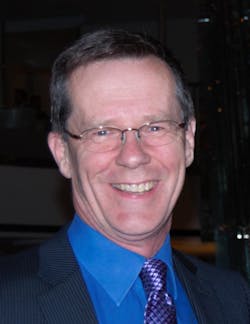Are you Ready for the Aviation Filtration Changes?

The world of aviation fuel filtration is changing. From the end of 2020, the Energy Institute (EI) is withdrawing its support for EI1583 – the specifications to which all filter monitor elements are qualified.
In 1987, fueling operations almost exclusively switched from Filter Water Separators to Filter Monitors because it was found that the performance of Filter Water Separators could be adversely impacted by surfactants resulting in water passing through and onto aircraft.
Filter Monitors were the ‘fail-safe’ alternative for fixed dispensers, hydrant carts and tankers as the final into-plane filtration. The Super Absorbent Polymers (SAP) they contained reliably removes even the smallest amounts of suspended water from fuel, leaving only clean and dry fuel to enter the aircraft. Water in aircraft tanks can freeze at altitude blocking fuel filters and starving engines of fuel.
Then in 2010, there was an incident involving Cathay Pacific Flight 780 (CX780), which is well documented on YouTube for anyone wanting to see what happened. Small quantities of the SAP were found to have leeched from vehicle filters passing into the aircraft fuel tanks and partially blocking fuel control valves.
The cause was poor housekeeping, allowing water to pass into the hydrant and tankers, filtration blockage due to the SAP having performed its job in multiple vehicles, and then the operators adopting extreme processes to continue fueling the aircraft. This resulted in shock waves through the filters that caused SAP to leech from the elements. Another seven incidents of SAP migration into aircraft have been identified since.
SAP migration can occur for a number of reasons. In 2017, the aviation industry through the International Air Transport Association (IATA), Air Transport Association (ATA) and Joint Inspection Group (JIG) introduced interim procedures while SAP-free filtration was developed.
Today, we have two new filtration methods. We have FAUDI's Dirt Defense Filters and Parker Velcon’s Water Barrier Technology.
FAUDI's system replaces the current filter monitor elements with a dirt filter to capture any particulate matter and a water-sensor (particle counter) probe installed downstream of the filter to detect ‘wet’ fuel.
Detecting water of 15 parts per minute (ppm) or greater, will trigger an alarm to alert the operator to take action. At 30 ppm, the system will shut down fuel flow by deactivating either the pump or the deadman control.
Sites using this technology will need procedures to deal with the removal of ‘wet’ fuel from the vehicle, hydrant system and pipework to be able to restart the fueling.
The FAUDI technology will be available by the end of 2020.
The Parker Velcon Water Barrier Technology, by contrast, is a ‘drop-in’ element replacement for the current monitor elements.
The elements have pores of 0.5 micron to block the water molecules which would be discoverable as a rise in differential pressure (dP).
Inundation of the filter with ‘wet’ fuel would shut down the fueling; however, draining the vessel of the water would allow the fueling to be restarted, even if this needed to be repeated to remove the wet fuel from the system.
The Water Barrier Technology is currently undergoing field trials to determine service life. This has been delayed by the significant reduction in fuelings due to the COVID-19 pandemic, so will not be completed until later 2021.
The current 7th Edition Filter Monitor Elements will continue to be available into 2021, but all operations need to plan a transition to SAP-free filtration. The SAP risks must be managed until then with the current requirements as the minimum:
- Change the filter monitors elements annually or when reaching a differential Pressure of 15 pounds per square inch (psi) - whichever is earlier;
- Fit a differential pressure switch to the DP gauge to shut down the fueling if the dP reaches 15 psi where this is practical;
- Ensure all new elements are thoroughly flushed before being placed in service to remove any loose SAP fibers as a result of the manufacturing processes.
Ian Bell has significant experience in the aviation fuels and training industries and now operates his own consultancy Global Safety Partners, which supports regional aviation fuels and refueling operations with training, engineering, maintenance and operational support services. For more information, visit www.globalsafetypartners.com
About the Author

Ian Bell
Director - Global Safety Partners
Ian Bell has significant experience in the aviation fuels and training industries. Ian was the Operations and Safety Manager for Shell Aviation in the Asia-Pacific Region and now operates his own consultancy Global Safety Partners, supporting regional aviation fuels and refuelling operations with training, engineering, maintenance and operational support services.